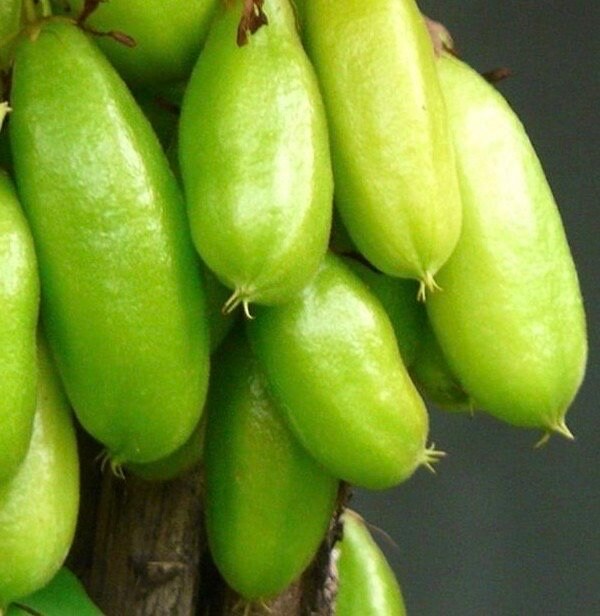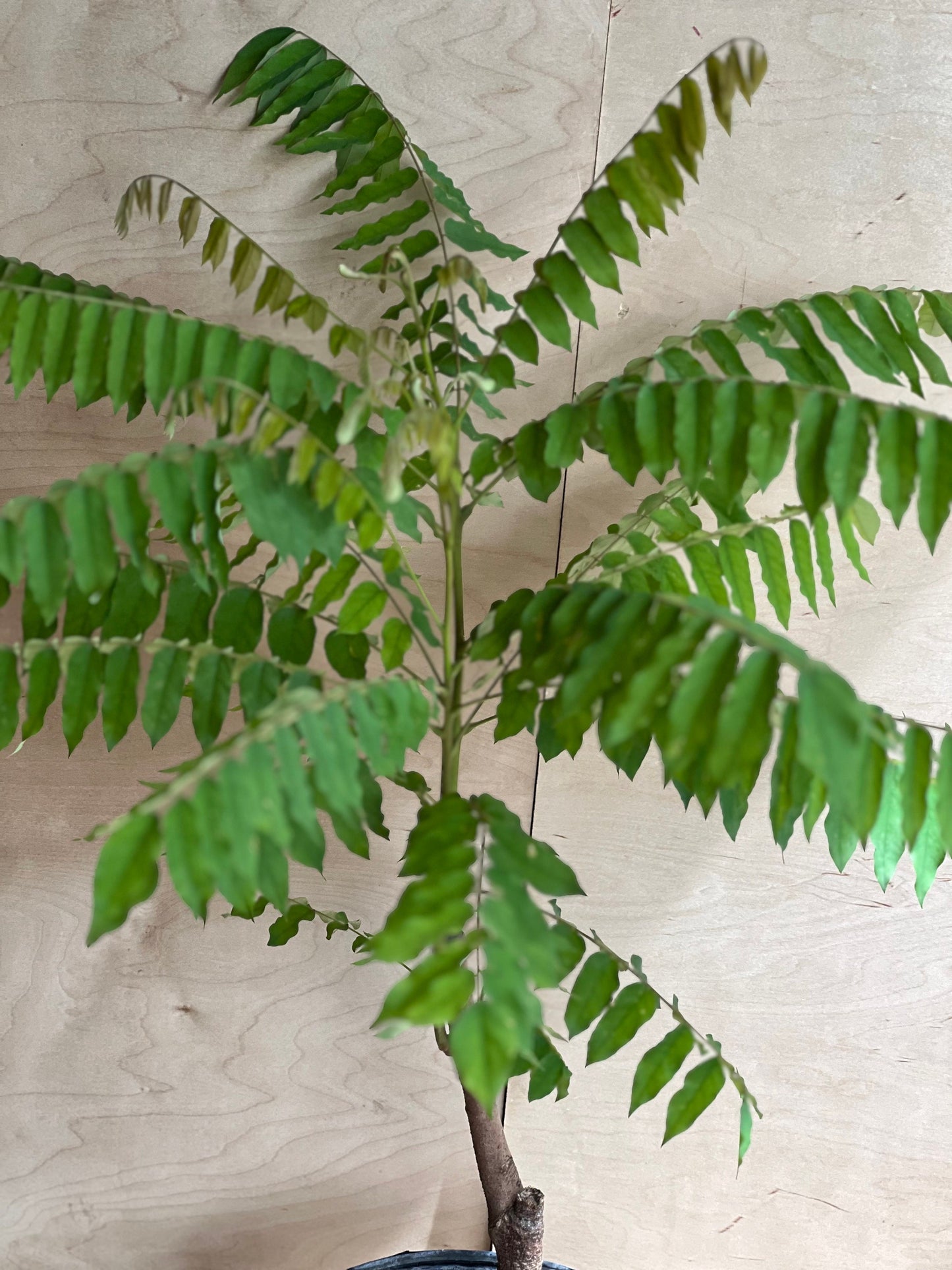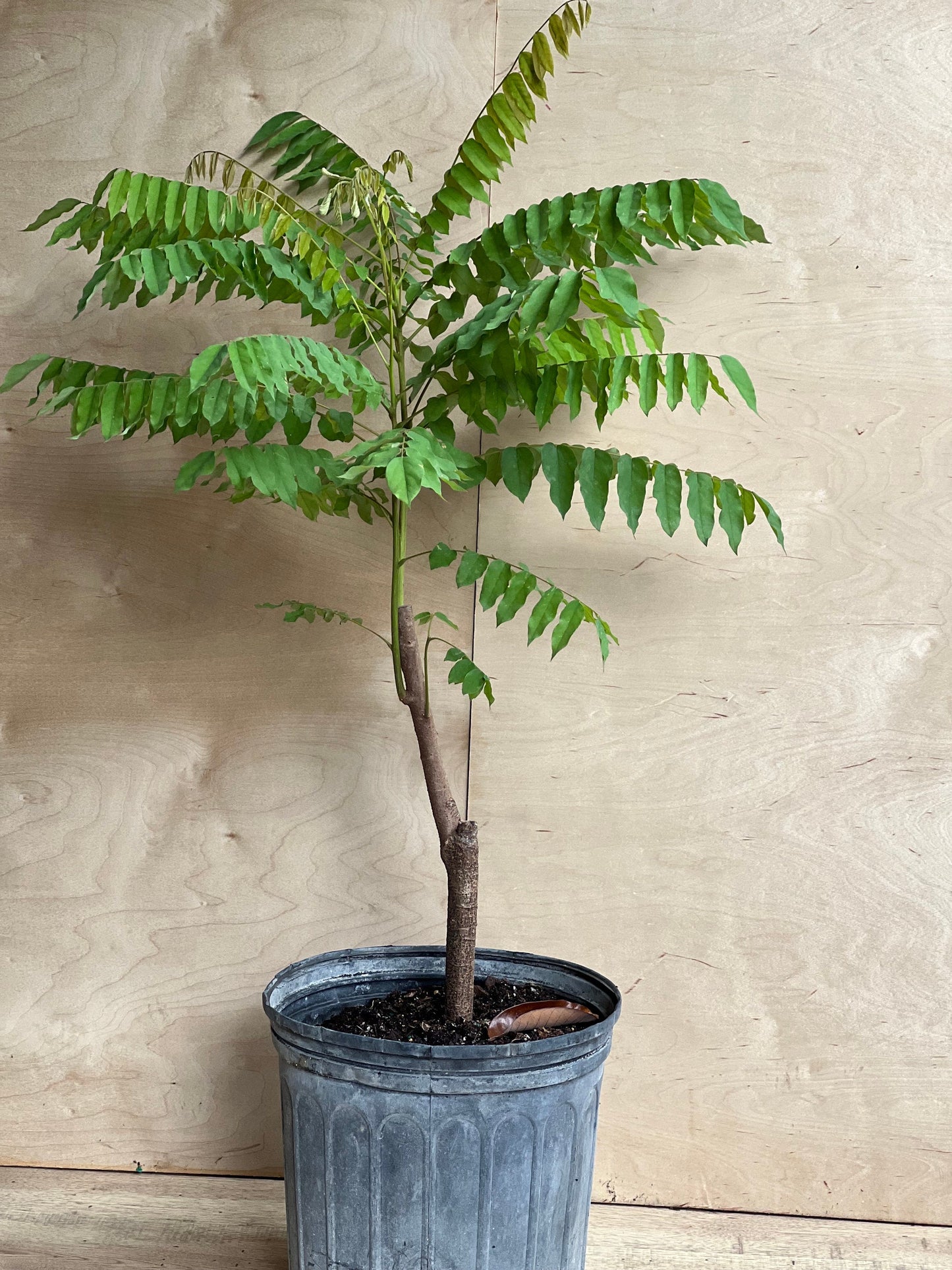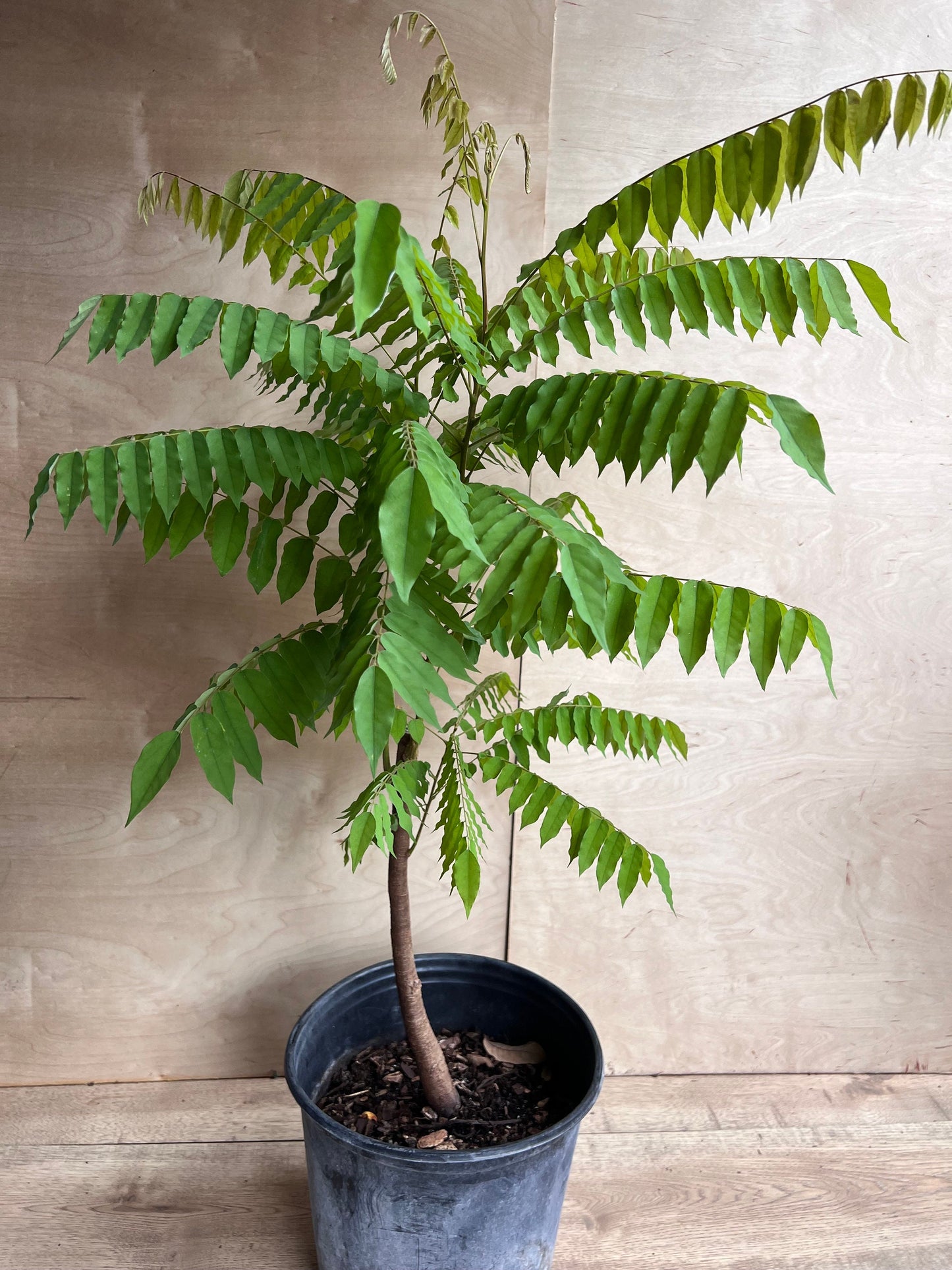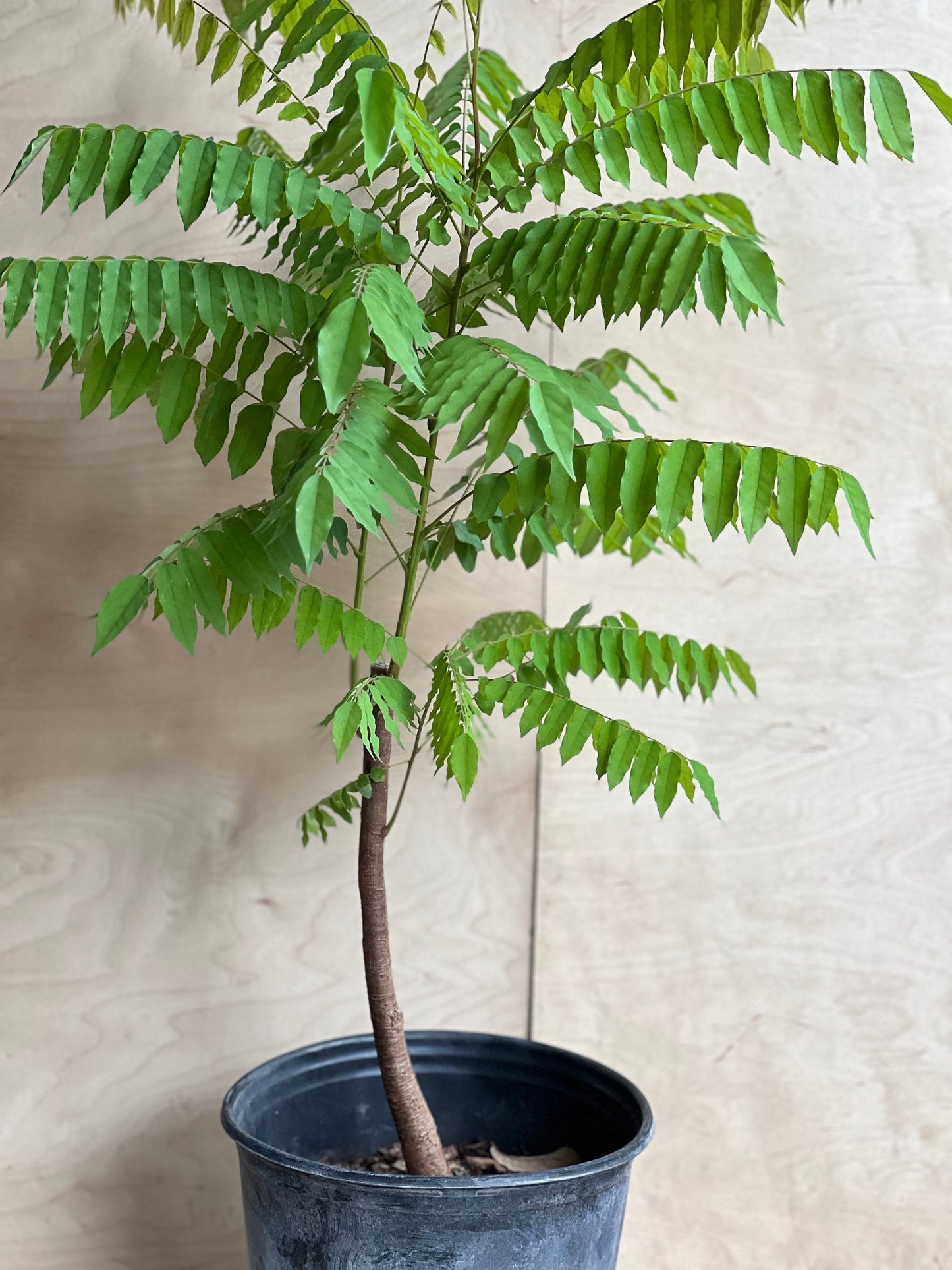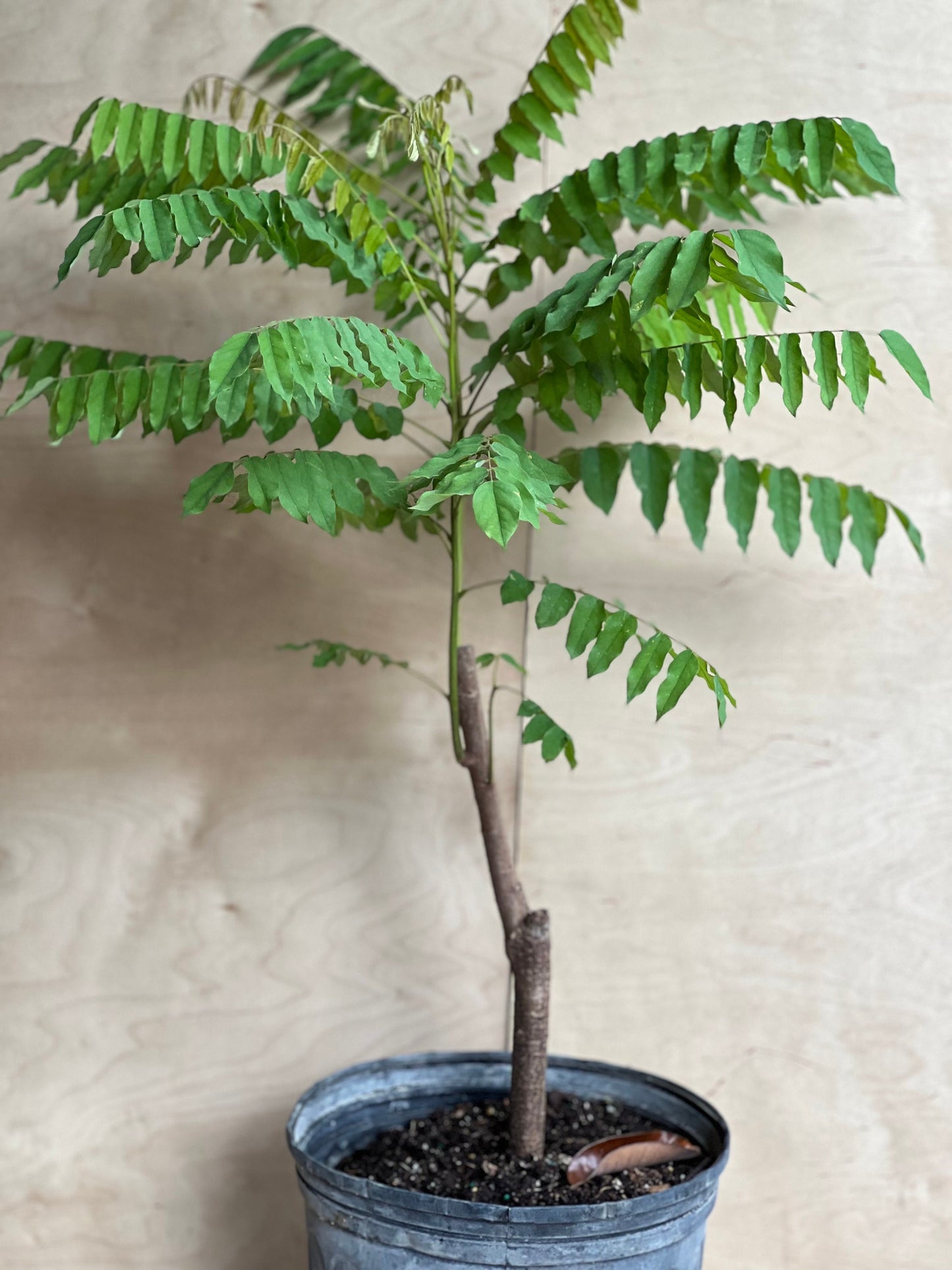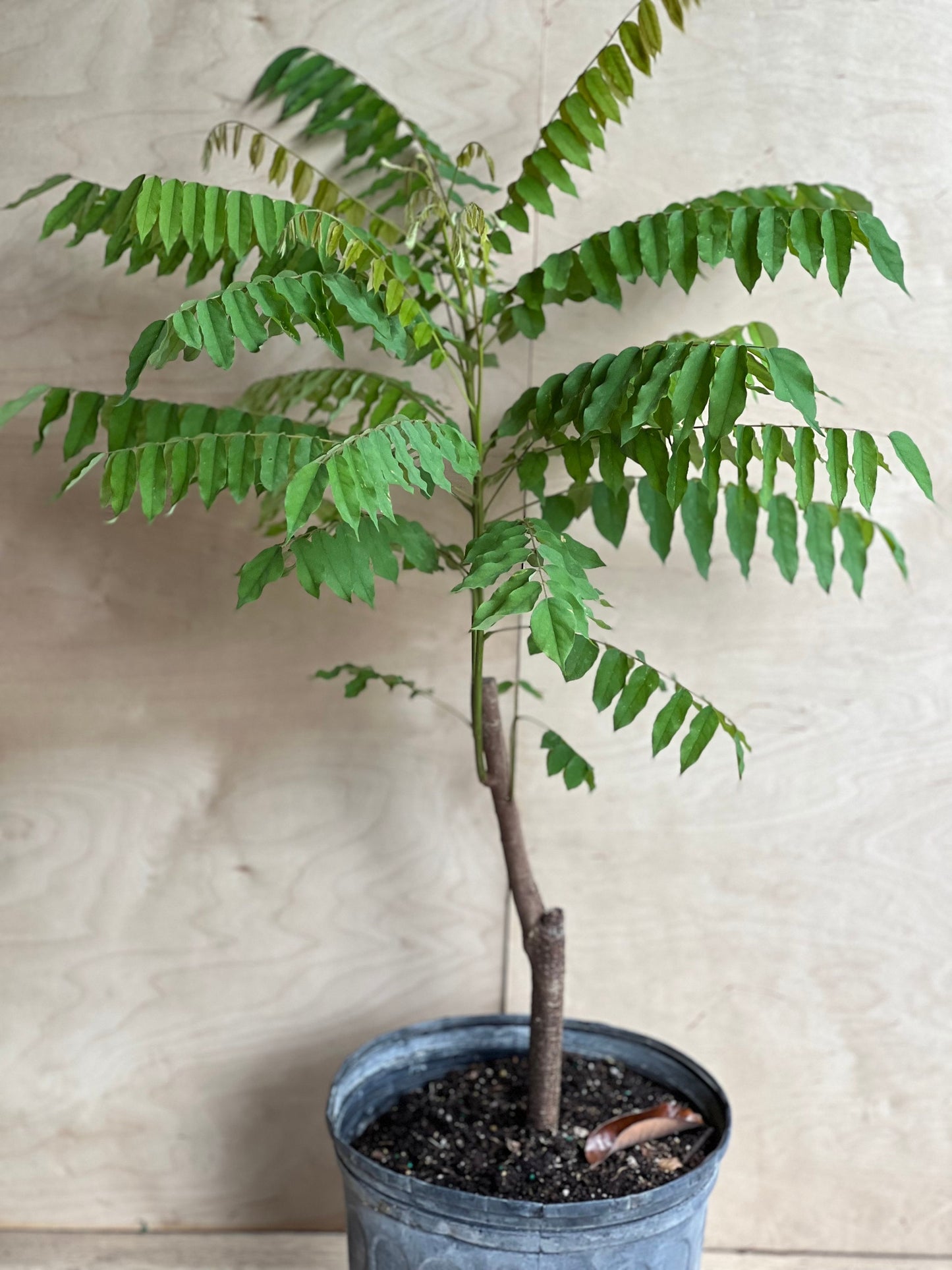1
/
of
7
Bilimbi, Averrhoa, Belimbing wuluh in 3 gallon pot, cucumber tree, tree sorrel.
Bilimbi, Averrhoa, Belimbing wuluh in 3 gallon pot, cucumber tree, tree sorrel.
Regular price
$77.95 USD
Regular price
$103.94 USD
Sale price
$77.95 USD
Unit price
/
per
Shipping calculated at checkout.
Couldn't load pickup availability
The Bilimbi (Averrhoa bilimbi) is a tropical fruit tree known for its small, sour, cucumber-like fruits, used in cooking and traditional medicine. Native to Southeast Asia, this unique tree thrives in tropical and subtropical climates and makes an excellent addition to a home or container garden.
Light Requirements
- Full Sun: Bilimbi trees require 6-8 hours of direct sunlight daily for optimal growth and fruit production.
- Indoor Growing: Place near bright windows or use grow lights to ensure sufficient light exposure.
Watering
- Keep soil consistently moist but not waterlogged. Water regularly, especially during dry periods.
- Signs of Overwatering: Yellow leaves, root rot, or drooping branches.
- Signs of Underwatering: Wilting, slow growth, or dry leaf tips.
Temperature
- Bilimbi thrives in warm temperatures (75°F to 95°F / 24°C to 35°C).
- Avoid exposure to temperatures below 50°F (10°C) as it can harm or kill the plant.
Soil
- Bilimbi trees prefer well-draining, loamy soil with a slightly acidic to neutral pH (6.0–7.0).
- Avoid heavy clay soils and use sand, perlite, or compost to improve drainage in container mixes.
Fertilizing
- Feed during the spring and summer with a balanced slow-release fertilizer (e.g., 10-10-10) every 6-8 weeks.
- Organic options like compost or well-rotted manure are also effective.
- Reduce or stop fertilization in fall and winter.
Pruning & Maintenance
- Regular pruning promotes a compact tree shape and removes dead or diseased wood.
- Prune post-fruiting to encourage better growth in the next season.
Pests & Problems
Common pests include:
- Aphids
- Scale insects
- Spider mites
- Mealybugs
Control with neem oil or insecticidal soap.
Leaf Spot and Fruit Drop can occur due to poor airflow, water stress, or nutrient deficiencies. Maintain stable growing conditions to minimize these issues.
Pollination
- Self-Pollinating: Bilimbi doesn’t need a second tree for fruiting but benefits from having others nearby.
- Insect Pollination: Rely on bees or manually transfer pollen with a paintbrush if growing indoors.
Harvesting
- Fruits are ready 6-9 months after flowering.
- Bilimbi are green when immature and turn slightly yellow as they ripen.
- Use them for pickles, curries, sauces, or eat raw depending on taste preferences.
Container Growing
- Suitable for regions with cooler winters or limited space.
- Use a large pot with drainage holes (18-24 inches diameter).
- Repot every 2-3 years with fresh, well-draining soil.
With proper care, Bilimbi can thrive indoors or outdoors, offering unique culinary delights year-round.
Share
